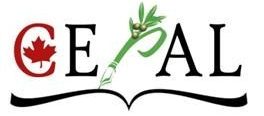 All photos from Megapixl (Creative Commons) All photos from Megapixl (Creative Commons) |
| Can you tutor a Palestinian studying in Lebanon?We need online conversation partners to help students become stronger in English. |
| Who are the learners? Volunteers in Canada tutor Palestinian students who are moving between high school and university. Most are also participants in the Bridge Program organized by our partner, Unite Lebanon Youth Project (ULYP). Some of the students’ new university courses are delivered in English, which can present a significant challenge. Students who are coming from refugee camps often report that speaking and listening in English are weaker than reading and writing with them. Being a volunteer tutor—what is involved? Ideally, one commits to meeting regularly, but for short duration sessions. Very typically one student is matched with two conversation partners in Canada, who meet online with the student once a week each, for 30 to 40 minutes. Volunteers aim to help students to practice and use increasingly more difficult or challenging aspects of English in conversation. Teachers or Education students are most welcomed, but you do not need professional accreditation or prior experience at tutoring to apply. What resources or orientation are available, to assist tutors? We make available a large bank of e-resources, with a range of conversation-generating activities or full lesson plans. We aid to reduce planning time. When volunteers ask, we help to set up and test a first online meeting, using popular apps such as Zoom or We Chat. From time to time, we also organize tutor orientation or into sharing workshops. How do I volunteer, or find out more? Please reach John Doyle, at cepal.edmonton@gmail.com , or phone 780-893-2694. |
